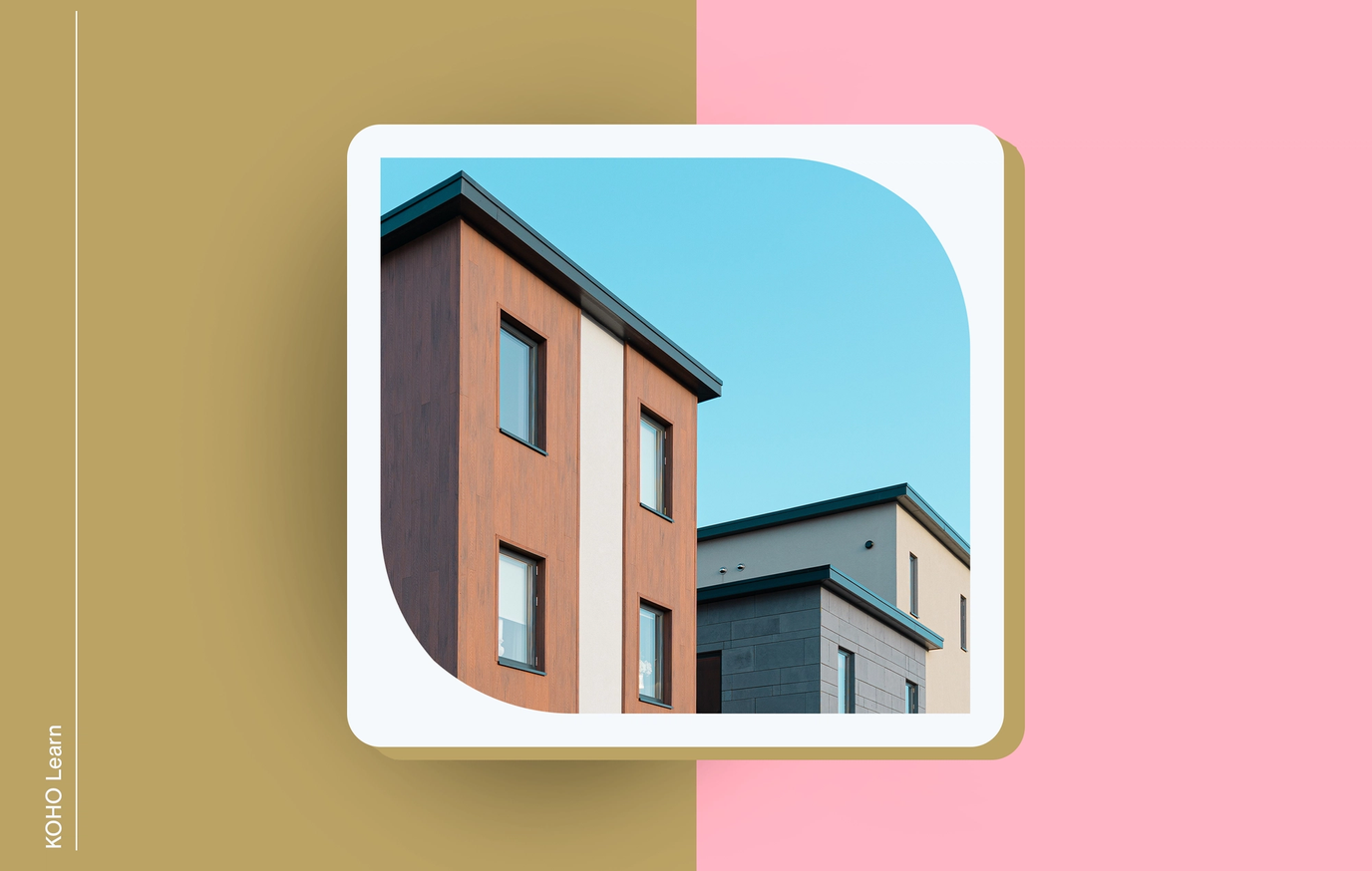
Rounding it up
A mortgage down payment is money that you put down on the total cost of your home.
A standard down payment for a mortgage is 20% but can be as low as 5% and as high as 35%.
If you put down less than 20% as your down payment, you will need to carry mortgage insurance. This will add to the total cost of your monthly mortgage payment.
The greater your down payment, the less is the overall cost of your mortgage over time. So if you can, try to build up those savings as much as possible!
Whether it’s your first or fifth home, buying property is a major step in your financial journey. Like many grand purchases, it comes with many financial considerations to take into account, a major one being your mortgage.
A mortgage will likely be one of the biggest financial commitments you’ll ever make, so you’ll want to make sure you understand how mortgages—and mortgage down payments—work. That way, you know exactly what you’re getting, and getting into.
What is a mortgage?
Simply put, a mortgage is a loan used to buy a home. Your mortgage lender will usually be a large financial institution, such as one of Canada’s five major banks or a credit union.
The money you save for a home purchase is called a mortgage down payment. Your down payment size depends on a few factors, but lenders will typically require 20% of the total purchase price (though sometimes, this can sometimes be as low as 5%). If you can, it’s valuable to save close to or over the standard 20%, as doing this can eradicate the need for mortgage insurance, thereby reducing the total cost of your mortgage over time.
Thinking about a mortgage? Here’s what to consider
Prior to getting a mortgage, you should ask yourself a few questions, like are you financially ready for a mortgage? Wanting a mortgage and being able to qualify for one through a financial institution are not one and the same. Also ask yourself if you even want a mortgage. Getting a mortgage and “committing” to a home is a life-altering decision—consider it carefully.
Are you financially ready for a mortgage?
Getting a mortgage is a huge financial decision, so it is important to be sure to think it through thoroughly beforehand. It is important to consider your current financial situation in order to decide how much mortgage you can actually afford.
In order to be financially ready for a mortgage, there are a few important financial steps to consider. First, you need to be credit-worthy, meaning you have to have good credit. It usually takes a while to become credit-worthy, though there are credit building tools available to help speed up the process. A good credit score will secure you a better interest rate on your mortgage, which ultimately decreases the cost of the total loan over time.
You will also need to have ample savings to use as a down payment towards the mortgage. Remember, we’re aiming for at least that standard 20%!
Lastly, you will want to have a stable job. If you don’t have a regular 9-5 job, this would work to your advantage. If you are a freelancer or other self-employed professional, you would want to be well-established in your career to afford you at least a somewhat regular stream of income—this is what a lender typically wants to see.
Do you want a mortgage?
Owning a home is a dream for many but it is not the right choice for some. Owning is a lot of responsibility, which includes being responsible for any home repairs, homeowner’s insurance, and property taxes. Home ownership also means less flexibility for you to move around from city to city, as well as less available cash flow for unexpected emergencies. If you intend to stay in a single location for a long time and can contend with the responsibility of homeownership, then owning a home may be right for you.
Of course, homeownership comes with a wealth of benefits. First, it’s likely a smart investment. Unlike the volatile stock market, real estate is a generally less risky investment as its value tends to increase over time.
Another financial benefit of owning a home is that you build equity through your mortgage payments, the equity being the amount of money that is invested in your home. Equity is definitely a financial milestone to aspire to in one’s financial journey because it offers a few financial benefits that renting does not. Equity can be used as leverage for buying additional real estate and obtaining loans for school or business.
Additionally, owning a home offers lifestyle benefits that renting doesn’t. As a homeowner, you are free to renovate and decorate as you please. You may repaint, demolish rooms, add a garden or two. There is also the security of knowing that there is no chance of you being asked to move out at the owner’s discretion.
SPEND SMARTER. SAVE FASTER
Applying for a mortgage
Let’s assume you’ve considered the pros and cons of owning a home and decided the latter is the way to go. The next step is starting your research — what kind of home can you afford? Where do you want to live? What does your budget look like?
During this phase, it’s a good idea to get pre-approved for a mortgage. The pre-approval will let you know how much money the financial institution is willing to lend you. This number will be closely aligned with what kinds of home you can afford. Pre-approval takes into account your income, assets, and level of debt, as well as your debt to income ratio. The mortgage pre-approval determination shows you the maximum amount of mortgage you can qualify for, estimates your mortgage payments, and even locks in your mortgage interest rate for a set period, usually between 60 and 180 days.
It is useful to get a mortgage pre-approval not only for the information that it can afford you but also because it can become a hard set approval, with additional paperwork.
How much is needed for a down payment
Say you got pre-approved for a mortgage, congratulations! The next step is deciding how much of your savings you would need to forfeit to put towards a down payment. To recap, a mortgage down payment is the amount of money you need to put down towards the total purchase of your home. The down payment is deducted from the total purchase price of your home, making the mortgage the total purchase price of your home minus the down payment.
Again, the standard mortgage down payment for a home is 20%. The average absolute value
of a mortgage down payment depends on the cost of housing in the area where you are looking to make the purchase. In Toronto, for example, the average down payment for a house is $200,000, or $100,000 for a condo. Of course, if you are looking to buy in an area that is not as notoriously expensive, the down payment would be much lower.
Though the standard down payment is 20%, it is not the absolute requirement. So if you do not have the money, it is possible to only put down 5%. In that case, the lender would require that you purchase mortgage insurance. Mortgage insurance adds to the total cost of your mortgage, which can range from .6% to 4.5% of your premium. The mortgage insurance protects the lender, not you, in case you can no longer make your mortgage payments and default.
The lender may require mortgage loan insurance even if you have a 20% down payment for your home. This can happen if you are self-employed with inconsistent monthly income, have a poor credit history, or are subject to other factors that make you a questionable borrower.
It is also possible that the requirement for a down payment on your home can be as high as 35% of the total home cost. If you don’t have a minimum of two years in-country work history, a higher down payment may be required.
Wrapping up
If you are considering buying a home and you think you are ready, the best course of action is to get pre-approved for a mortgage. With that pre-approval, the terms and conditions of the loan will be made preliminarily clear.

About the author
Yekaterina Galanova enjoys writing about personal finance, as well as aesthetic topics, though she is open to discovering new niches. She enjoys reading, traveling and beautiful landscapes.
Read more about this author